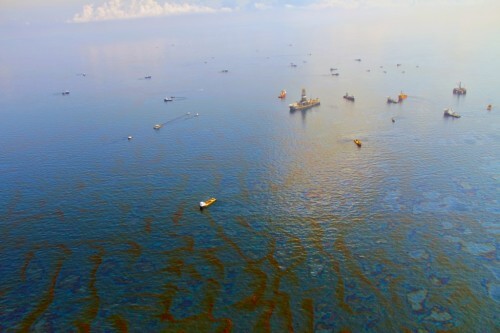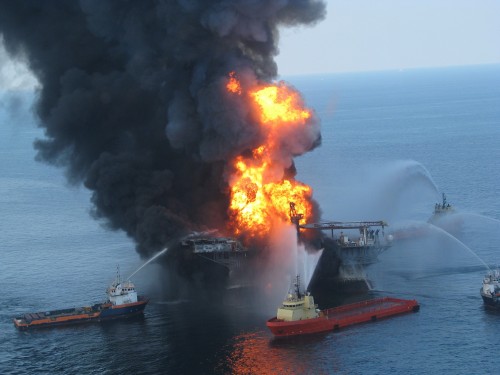Scientists from Spain have developed a sensor system that will help prevent the spread of dangerous substances leaking into the sea

Maya Falah, Angle - news agency for science and the environment
Today's maritime space serves as much more than a romantic horizon image for poems and stories, or a public space for recreation and recreation. As human technology develops and our energy needs increase, the sea gradually takes its place as a central resource on which we depend for our existence.
But as our dependence on the sea grows, so do the pressures on the maritime system. In recent decades, with the development of technologies that allow gas and oil drilling in the depths of the sea, an increase in the number of desalination facilities and power plants set up on the coasts and the development of renewable energy technologies placed in the sea, a lot of pressure has been created.
The constant disturbance created by these factors is also accompanied by the fear of accidents occurring that may cause heavy pollution such as oil, gas and other toxic material leaks, due to which entire marine areas may be severely damaged, sometimes irreversibly.
We all remember the difficult images from the great BP oil spill that occurred in the Gulf of Mexico in 2010, and although this is the most extreme case that has happened at sea in recent years, it is not the only case. The sea continues to be filled with oil and gas drilling sites and their number is steadily increasing, and cases like this can certainly recur.
Scientists from the Polytechnic University of Valencia in Spain (UPV) may have managed to relieve us of this concern to some extent: they have developed a system of smart sensors, whose role is to detect and warn of cases of marine pollution at an early stage in order to enable rapid and targeted treatment at the source of the leak and to prevent the contamination from spreading over a large area.
Sensors without limits
The sensors, which have been tested so far only under laboratory conditions, show promising results: they succeed not only in noticing the presence of various chemical pollutants in very low concentrations and alerting to the occurrence of a leak almost immediately, but also know how to delineate its boundaries and transmit the information to the shore in real time, thus alerting not only On its very existence but also on its exact location and the level of its spread.

The smart sensors connect to small devices floating on the surface of the water, and move independently in the areas of the leak in order to locate its edge. They distinguish between water infected with external pollution and clean water, and through wireless communication transmit the data to scientists on the shore. These receive the collected information and calculate the position of the sensors relative to the other sensors in the same area, and thus they can accurately delimit the area of the leak and warn about it before it spreads to huge dimensions.
The ability to locate leaks as quickly as possible and to understand their extent already at an early stage is particularly important, because in cases of material leaks such as oil it is almost impossible to clean the sea of the material after it has already spread. The restoration of the damaged area takes many years, and even then it is usually not possible to return the system to its original state. Therefore, the sooner the leak is detected, the greater the chances of preventing its spread and restoring the damaged area.
And what about Israel? Just last month, the University of Haifa announced a collaboration with a university in Texas (Texas A&M University), within the framework of which a marine monitoring system will be placed in the Mediterranean Sea with the aim, among other things, of alerting and assisting in dealing with cases such as the leakage of dangerous substances into the sea. Let's hope that, like the sensors of the scientists from Valencia, this system will also know how to identify the pollution as quickly as possible, and will help prevent future maritime disasters.
